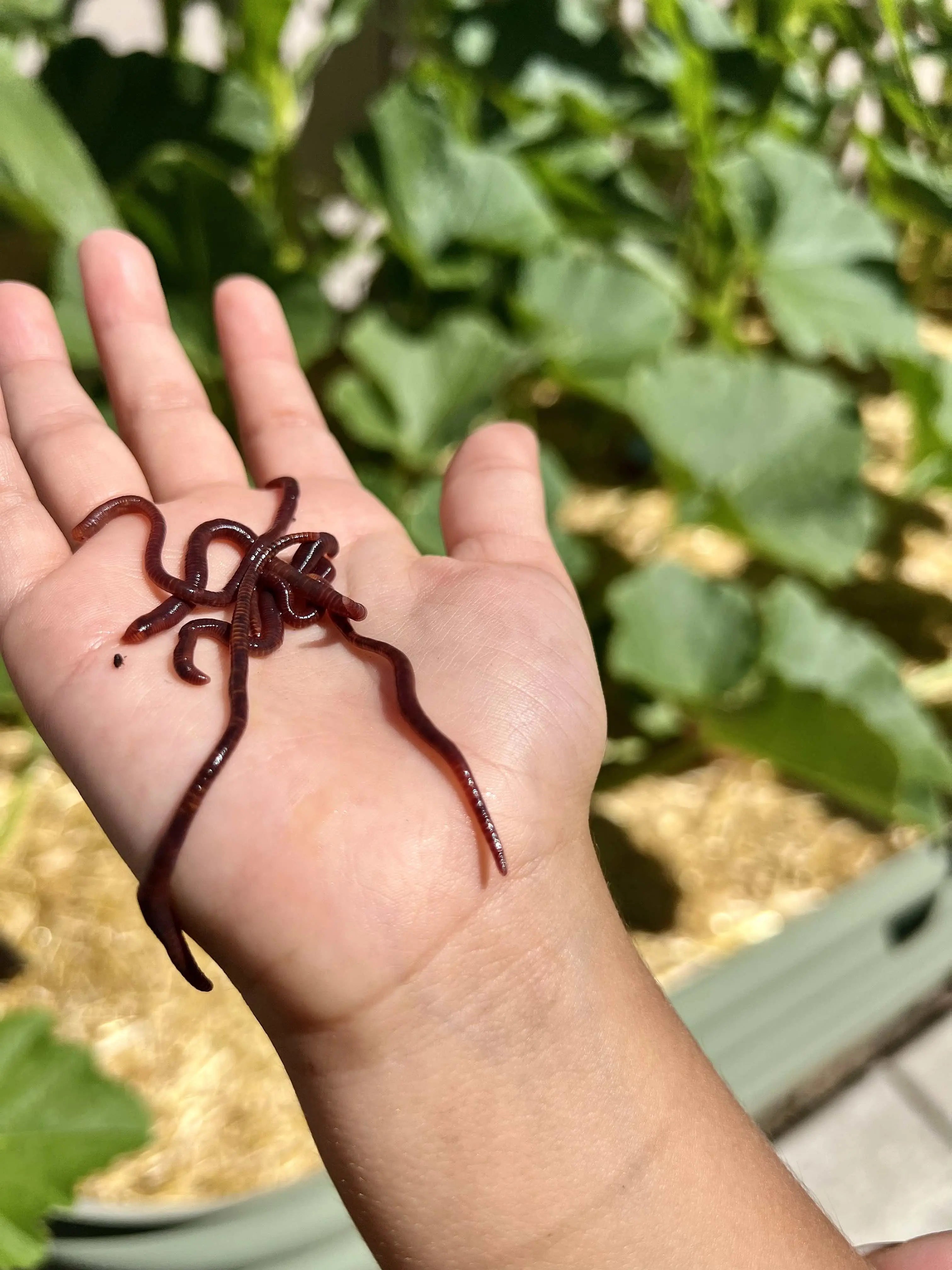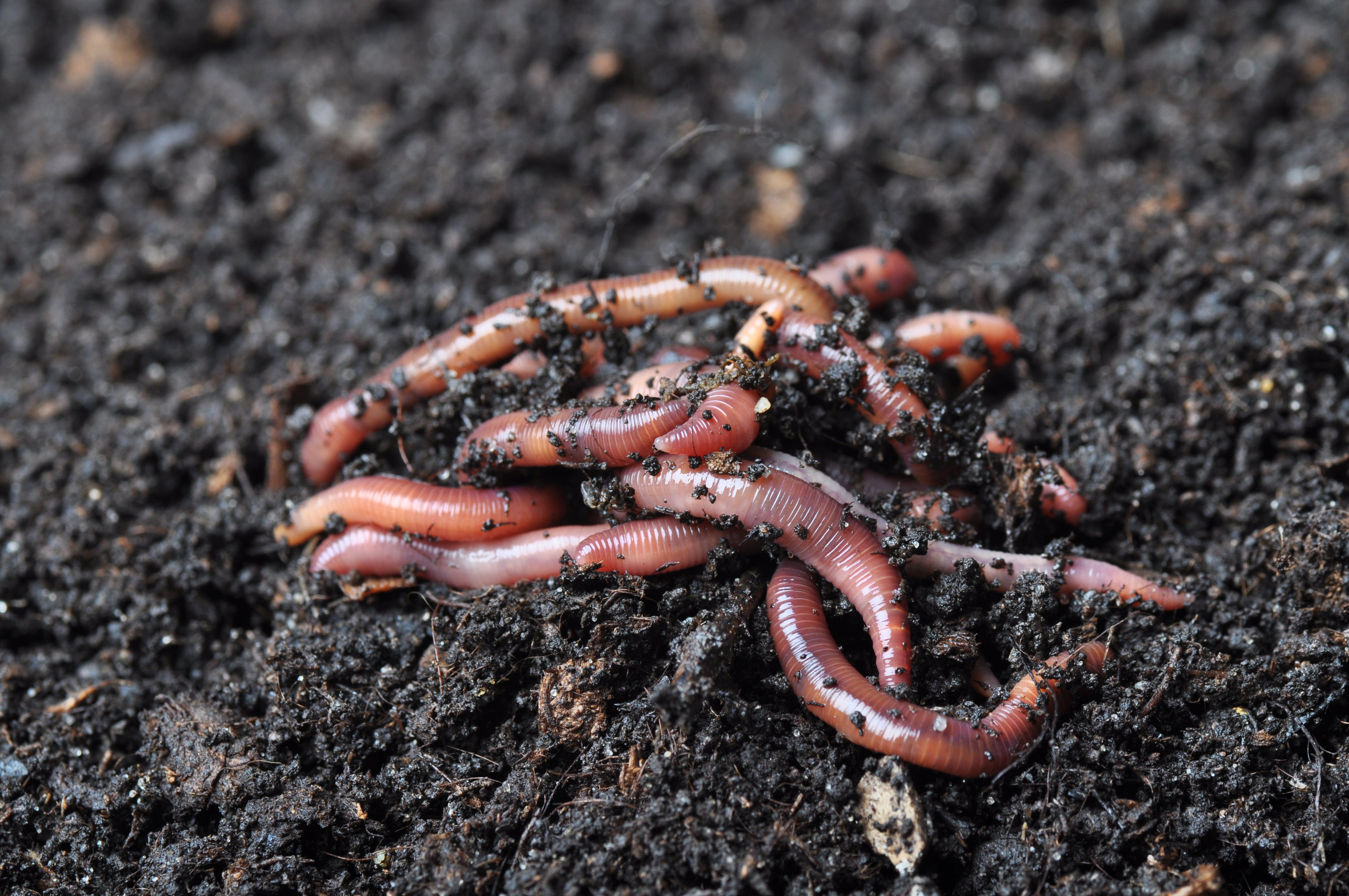Get Your Lawn in Top Shape with the Help of Lake Hickory Bait Grass Care Solutions
Get Your Lawn in Top Shape with the Help of Lake Hickory Bait Grass Care Solutions
Blog Article
Open the Secrets of Red Wigglers: Your Guide to Composting Success
The combination of red wigglers into composting methods presents a considerable opportunity for boosting dirt health and wellness and promoting sustainability. These microorganisms are not just efficient recyclers of natural waste; they provide a myriad of benefits that can change yard monitoring. Comprehending their requirements and behaviors is crucial for optimizing their capacity, from establishing up an ideal worm bin to feeding them the ideal products. As we explore the crucial elements of successful vermicomposting, one could question how these small creatures can cause a more vibrant and effective yard environment.

What Are Red Wigglers?
(Red Wiggler Express)Red wigglers, medically recognized as Eisenia fetida, are a types of earthworm largely made use of in composting as a result of their exceptional ability to break down raw material efficiently. These worms are defined by their reddish-brown pigmentation and a segmented body, typically gauging between 3 to 4 inches in length. Unlike other earthworm species, red wigglers prosper in abundant, organic settings, making them ideal for vermicomposting systems.
Belonging To North America, they are frequently located in decomposing leaves and compost heap, where they play a vital role in nutrient recycling. Their adaptation to staying in a damp, aerobic setting enables them to consume large amounts of organic waste, simplifying into nutrient-rich castings that boost dirt health.
Red wigglers recreate swiftly, with a single worm efficient in generating several cocoons weekly, each having numerous hatchlings. This fast recreation price contributes to their efficiency in composting procedures. They prefer temperatures in between 60 ° F and 80 ° F, and their activity level increases considerably within this variety, additional aiding in the decomposition procedure. Comprehending the biology and actions of red wigglers is essential for optimizing their possibility in composting applications.
Benefits of Utilizing Red Wigglers
Taking advantage of the power of red wigglers in composting provides many benefits that enhance soil health and promote lasting waste monitoring. These impressive microorganisms successfully break down raw material, changing kitchen scraps and lawn waste into nutrient-rich vermicompost. This finished item is extremely beneficial for plant growth, as it boosts dirt structure, boosts dampness retention, and improves nutrient accessibility.

(Red Wiggler Express)In addition, the presence of red wigglers in your composting system can accelerate the composting procedure, creating premium garden compost in a portion of the time compared to conventional techniques. The castings generated by these worms are additionally including advantageous bacteria that better enhance the soil ecosystem.
Establishing Your Worm Container
Creating an efficient worm container is an uncomplicated process that can substantially improve your composting efforts. Worm bins can be made from plastic storage bins, wood boxes, or readily readily available worm containers.
Next, prepare the bedding material, which offers as the worms' environment. A mix of shredded paper, cardboard, and coconut coir functions well, providing a comfortable environment for the worms.

Feeding Your Red Wigglers
To guarantee the health and wellness and efficiency of your red wigglers, it is necessary to provide them with a well balanced diet regimen that satisfies their dietary demands. Red wigglers grow on a diverse range of organic products, which not just supply required nutrients however additionally advertise efficient composting.
Beginning by incorporating kitchen scraps such as vegetable peels, fruit cores, and coffee grounds. Prevent citrus fruits, onions, and great post to read garlic, as these can be damaging to worm health and wellness. Additionally, introduce shredded paper, cardboard, and dry fallen leaves to produce a well-aerated atmosphere.
Feeding frequency should be monitored; generally, worms can consume half their body weight in food weekly. It is essential to prevent overfeeding, as excess food can cause undesirable odors and bring in bugs. A great technique is to add food in percentages, allowing worms to process it before introducing a lot more.
Preserving dampness degrees is additionally crucial; the bedding ought to perspire yet not soaked. Be sure to routinely inspect the temperature and pH degrees of the bin to guarantee an optimal setting for your red wigglers, ultimately enhancing their composting effectiveness.
Harvesting and Utilizing Compost
A successful composting procedure with red wigglers finishes in the rich, dark garden compost referred to as vermicompost, which can significantly improve dirt health and wellness and plant development. Collecting this nutrient-dense product commonly occurs every 3 to six months, depending on the size of your system and the amount of organic matter being refined.
To gather, carefully separate the garden compost from the worms and any type of undecomposed products. One reliable method includes moving the components of the bin away and adding fresh bed linen and food to the empty space, motivating the worms to move. After a few days, the compost can be collected from the contrary side.
It is crucial to make use of vermicompost properly to maximize its benefits. By incorporating vermicompost right into your horticulture program, you not just recycle natural waste however additionally produce a successful environment that sustains lasting gardening techniques.
Verdict
In recap, red wigglers offer as phenomenal allies in composting efforts, transforming natural waste right into nutrient-rich vermicompost. By recognizing the optimal problems for their environment, feeding demands, and compost harvesting strategies, garden enthusiasts can enhance dirt wellness and advertise plant vigor.
Report this page